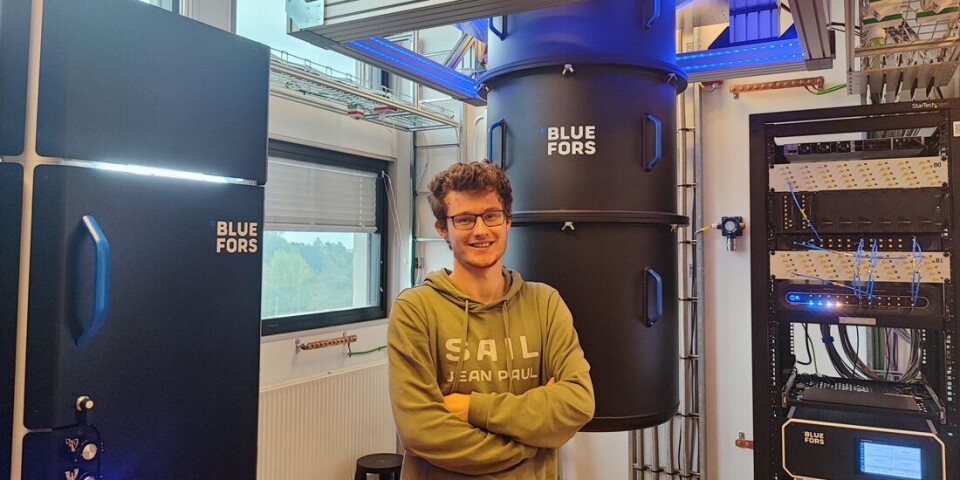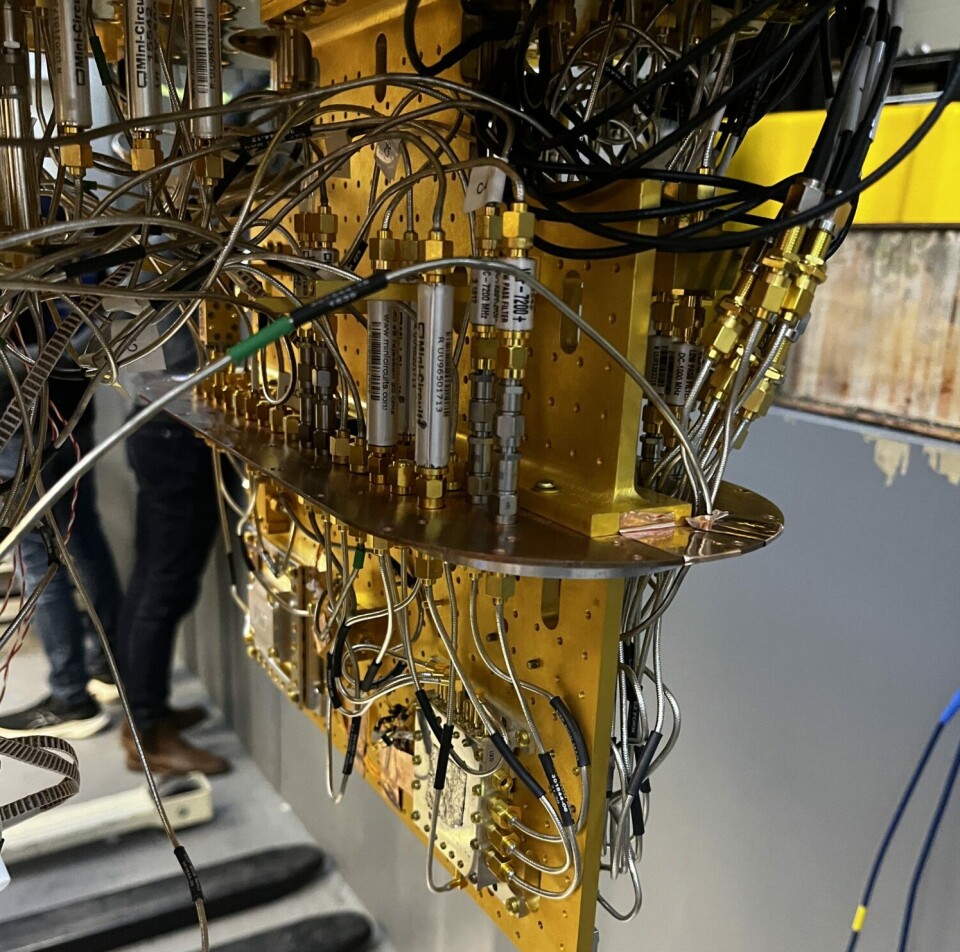THIS CONTENT IS BROUGHT TO YOU BY NTNU Norwegian University of Science and Technology - read more
These researchers want quantum computers that work properly
Researchers believe that supercomputers will become more common in the future. Now they are one small step closer.

Quantum computers are computers that are much faster at performing certain important types of calculations than many of today’s machines.
So far, the building blocks that perform the calculations in a quantum computer, the so-called qubits, are too unstable to create quantum processors large enough to be truly useful.
“Quantum computers are completely dependent on qubits remaining stable in order to perform the special calculations they're designed for,” says Jacob Benestad at NTNU's Department of Physics. He recently earned his PhD for his work on qubits.
The terminology is a little intimidating, but not as difficult as you might think.

Not just 0 and 1, but everything in between
Ordinary computers process data in the form of what are called ‘bits.’
The impressive flow of images, videos, and text through our computers is based on a simple process: power is either ‘off’ or ‘on’ in the transistors that form the brains of these machines. They are 0 or 1. There is nothing in between.
But quantum bits, which quantum computers use to process information, can also have intermediate forms. They are not just on or off, they can be anything in between.

At the same time, each individual qubit can ‘know’ the state of all the other qubits. At least as long as everything works. Altogether, this makes quantum computers incredibly fast at performing certain types of calculations.
Sensitive qubits
But these qubits have a problem.
“Quantum bits are extremely sensitive to their surroundings. Even small disturbances can cause them to lose their unique properties,” says Jeroen Danon, a professor at NTNU’s Department of Physics
Danon is among the researchers working to make these qubits more stable, thus solving this problem.
Constantly adjusting the qubits
“We've developed a method that monitors the qubits in real time and adjusts their frequency continuously to adjust for the disturbances from the environment,” says Benestad.
He worked on this method with his colleagues at NTNU, Leiden University in the Netherlands, the Niels Bohr Institute at the University of Copenhagen, and the Massachusetts Institute of Technology.
With the help of a FPGA controller, the system detects when a qubit begins to become unstable. The controller then immediately corrects the frequency of the qubit so that it remains stable.
Works almost like a guitar string
You can compare it a bit to a guitar string. A guitar string can create very nice tones as long as it's tuned correctly. But it quickly goes out of tune if disturbed.
The research team was able to find a way to tune the guitar string in real time, while it's in use. This allows the qubit to hold its tone longer and play more cleanly.
“This provides a longer lifetime, better precision, and more robust quantum operations. It's an important step towards reliable quantum computers,” says Danon.
This finding is important because we need many stable qubits to build quantum computers that actually work, the researchers point out.
Reference:
Berritta et al. Efficient Qubit Calibration by Binary-Search Hamiltonian Tracking, PRX Quantum, 2025. DOI: 10.1103/77qg-p68k
———
Read the Norwegian version of this article on forskning.no
More content from NTNU:
-
Researchers now know more about why quick clay is so unstable
-
Many mothers do not show up for postnatal check-ups
-
This woman's grave from the Viking Age excites archaeologists
-
The EU recommended a new method for making smoked salmon. But what did Norwegians think about this?
-
Ragnhild is the first to receive new cancer treatment: "I hope I can live a little longer"
-
“One in ten stroke patients experience another stroke within five years"





































